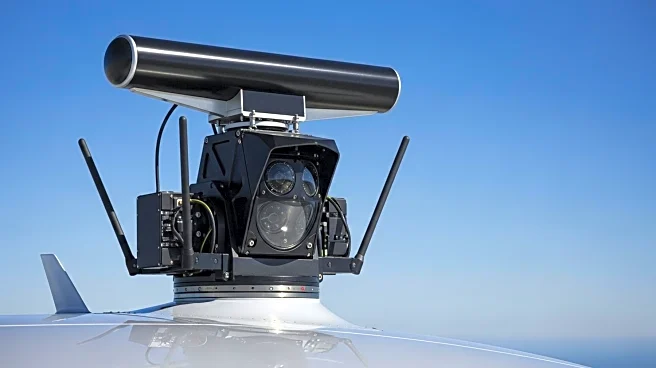What's Happening?
CMC Electronics is focusing on developing advanced solutions to counter GNSS jamming and spoofing, which pose significant risks to aviation safety. The company is leveraging its expertise to create spoofing detection and mitigation strategies, including basic definition checks, inference, deduction, and direct comparison algorithms. These efforts are part of a broader industry initiative to enhance resilience against spoofing and jamming threats. CMC Electronics is actively engaging in discussions about cockpit alert systems and collaborating with design partners to implement early solutions, potentially ahead of formal standards.
Why It's Important?
The development of effective GNSS spoofing detection solutions is crucial for aviation safety, as these threats can compromise navigation systems and lead to severe operational disruptions. By advancing these technologies, CMC Electronics is contributing to the industry's ability to safeguard aircraft against potential spoofing attacks. This initiative not only enhances safety but also supports the aviation sector's efforts to maintain reliable and secure operations. Stakeholders, including airlines and regulatory bodies, stand to benefit from improved safety protocols and reduced risks associated with GNSS vulnerabilities.
What's Next?
CMC Electronics is expected to continue its collaboration with industry partners to refine and implement spoofing detection solutions. As the aviation industry moves towards formalizing standards for GNSS resilience, CMC Electronics' proactive approach may influence the development of these standards. The company may also focus on expanding its solutions to cover a broader range of threats and enhance overall aviation safety. Stakeholders will likely monitor these developments closely, anticipating advancements that could set new benchmarks for navigation security.
Beyond the Headlines
The ethical implications of GNSS spoofing detection involve balancing technological advancements with privacy concerns. As detection systems become more sophisticated, the industry must ensure that these technologies do not infringe on individual privacy rights or lead to unintended surveillance. Additionally, the legal framework surrounding spoofing detection and mitigation will need to evolve to address emerging challenges and ensure compliance with international aviation standards.









